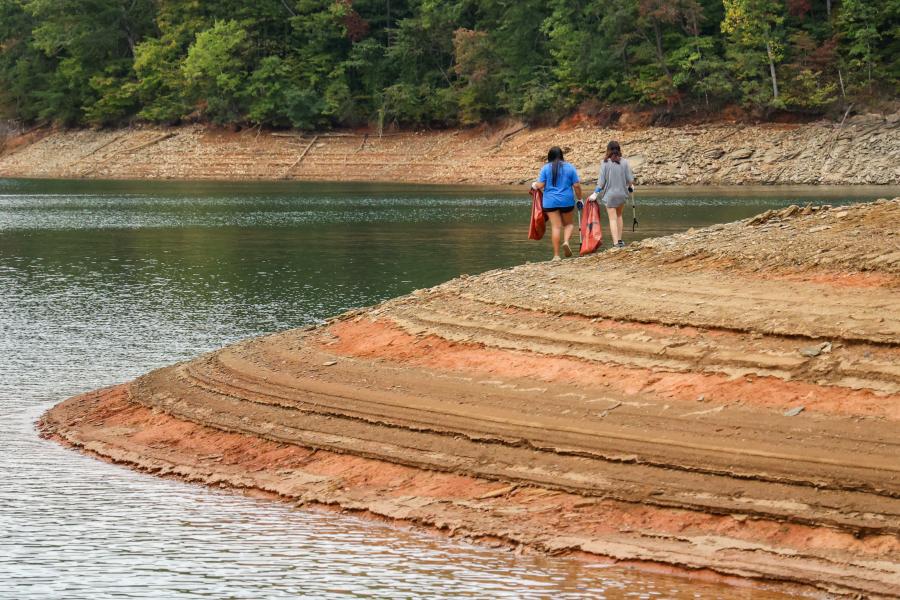

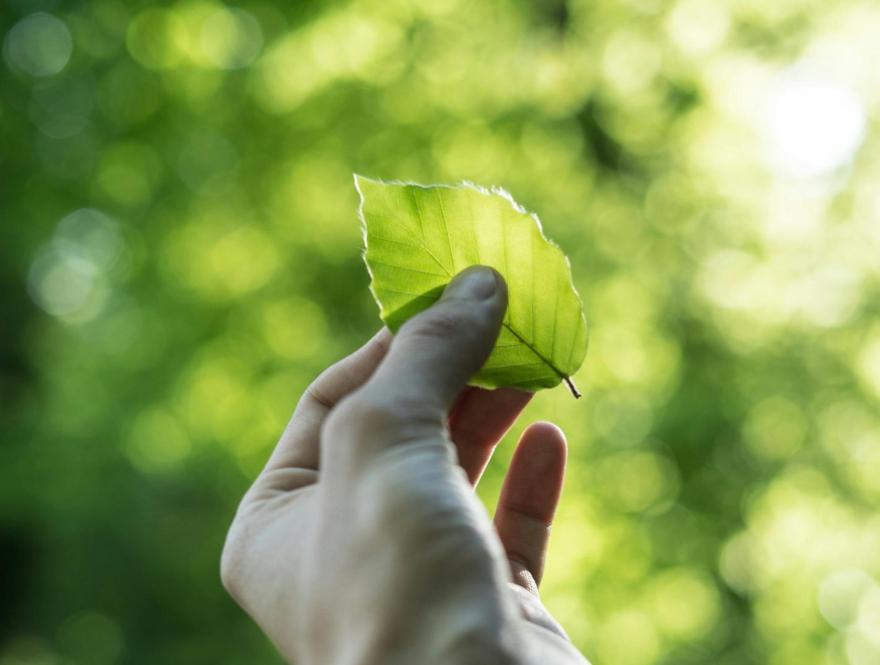
Waynesville is committed to building a healthier, more resilient community through smart, sustainable choices that benefit our people, planet, and future.
There are many definitions of Sustainability. In its broadest sense, it has three elements, economic, environmental and social and is simply defined as the ability of humans to live on earth in a stable way over the very long-term. In other words, meeting the needs of the present without compromising the needs of future generations.
Electric vehicle charging stations available throughout the town.
Montgomery Street parking lot (88 Montgomery St.): 2 level-2 chargers (7kW); DC Fast Charger (DCFC) 50kW (CCS & CHAdeMO plugs). The level 2 chargers are FREE and the DCFC costs $0.35/kWh as of May 2025
Ingles Hazelwood (FREE - 1678 Brown Ave.): 2 7kW level-2 chargers
Ingles Russ Ave (FREE - 201 Barber Blvd): 4 7kW level-2 chargers--all operable
TOW Recreation Center (FREE - 550 Vance St.): 2 level-2 chargers (7kW);
HCC Annex (23 Hendrix St.): Shell-Duke Energy chargers: 2 DCFC chargers featuring CCS and CHAdeMO plugs on each charger. Max speed = 70-80kW/hour. Cost is $0.41/kWh + 7% sales tax as of May 2025
Municipal buildings available to the public for various services.
Municipal Building/Town Offices (16 S. Main St): Town Manager, Human Resources, Town Clerk & Temporary Cashier. Hours & Info.
Town Hall (9 S. Main St.): Police Station, Development Services, Energy efficient building (only half the average NC buildings energy use)
Public Works (129 Legion Drive): Public Services (Electricity, Water, Trash) and temporary Finance Offices (due to Helene damage). Future Resilience Hub for emergency management.
Hazelwood Fire Station (280 Georgia Ave.): Secondary Fire Station, previous Finance Offices, under reconstruction. Energy efficient building (only half the average NC building's energy use)
North Main Fire Station (1022 N. Main St.): Fire Dept HQ
Greenway trails for walking, biking, and recreation.
Greenway Access: Dutch Fisher Park
Greenway Access: Waynesville Recreation Center
Greenway Access: Industrial Park
Designated bike routes and bike lanes throughout the town.
Bike Route: [START] Brown Ave (from Riverbend to Boyd Ave)
Bike Route: Boyd to Richland St.
Bike Route: Richland to Commerce St.
Bike Route: Commerce to Boundary St.
Bike Route: [END] Boundary to N Main St.
Public parks with facilities and green space.
Frog Level Public Garden: A small, community-led garden featuring native plants for pollinators and streambank resilience
Allen Creek Park: Haywood County Park (1725 Allens Creek Rd): Pavilion with picnic tables, soccer and open fields, playground, walking loop, public bathrooms. animals must be leashed, cleanup bags and trash cans positioned around park. Open: 8-5
Dutch Fisher Ball Park/Hazelwood Park (268 Westwood Circle): Pavilion with picnic tables and public bathrooms(only open during games), little league/softball field, start of short paved greenway trail along Richland Creek to behind the Hickory Hollow apts. animals must be leashed, 3 acres Open: Dawn to Dusk
Sulphur Springs Park (112 Timothy Lane): Landmark of sulphur springs considered medicinal in past. Small gazebo and green space, 1 acre. Open: Dawn to Dusk
Obama-King Park (10 Calvary St.): Pavilion with picnic tables, grills, horseshoe pit, small playground, animals must be leashed, 0.5 acres. Open: Dawn to Dusk
East St. Park (372 Howell St.): Pavilion with picnic tables, basketball court and playground, animals must be leashed, 3 acres. Open: Dawn to Dusk
Chestnut Park (338 Chestnut Park Dr.): Pavilion with picnic tables, playground, animals must be leashed, 8 acres. Open: Dawn to Dusk
Recreation Park (128 W Marshall St.): 3 pavilions with picnic tables, 6 asphalt tennis courts and hitting wall, basketball court, playground & all ability playground, baseball field, soccer and open fields, animals must be leashed, 12 acres. Open: Dawn to Dusk (some tennis courts have lights and can be used until 10pm, courts reserved M,W,F 10-Noon for Senior Tennis, and weekdays 3-5pm during high-school tennis season)
Skate Park (285 Vance Street): 8,000 square foot concrete skate and scooter facility, lights. Bicycles not allowed. Unsupervised. Open: Dawn to 10 PM
Disc Golf Course (starts at 430 Vance St.): 18 hole course split between Recreation and Vance Street Parks. Hole #1 starts beside Vance St. parking lot. Map & Rules. Not lit. Some restrooms around the course. Open: Dawn to Dusk
Vance St. Park (430 Vance St.): Pavilion with picnic tables, softball field, soccer & open fields, dirt track, restrooms, two sand volleyball courts, green space and a walking trail beside Richland Creek with a bridge to a large green space loop. Handicapped fishing pier. Also site of the 64,000 sq.ft. Recreation Center. 16 acres. Open: Dawn to Dusk
Facilities for sports, fitness, and community events.
Old Armory Rec. Center (44 Boundary St): Gymnasium with basketball court, pickleball, cornhole and open gym hours. Schedule & Fees. Also hosts Senior Nutrition Center and Bridge games.
Recreation Center (550 Vance St.): 64,000 square foot facility with 2 multi-use basketball/volleyball/pickleball courts and bleachers, large lap & exercise pool (pool info), water park, 2 racquetball courts, weight room, exercise class room, indoor track, lockers. Fee Schedule. Monday - Friday: 6:00am to 9:00pm.
Haywood county is one of only two counties in the entire U.S. that is a headwaters only county. That means all waterways within the county also originate in the county before heading down to other counties. This provides a unique opportunity (and responsibility) for clean water for drinking, brewing, for wildlife and fishing, for recreation and just for marveling at their beauty.
Waynesville’s water is some of the purest in the U.S. due to having control over its watershed for the drinking supply. In the 1920’s, the town’s leaders had the foresight to purchase the 7,340 acres after severe droughts. The large investment was seen by some at the time as foolish and the town council was voted out the next term. Their political sacrifice won in the long-term though and with conservation easements added in the 2000s, the town’s water is secure and pure in a way that few towns are.
The town of Waynesville’s largest single public energy use is the Rec Center at 30% of the total. This makes sense as it is the town’s largest building and sees the most use by residents and non-residents. An assessment done on the Rec Center shows its roof can hold enough solar cells to offset around 60% of its energy usage. This investment can pay itself back and provide savings to the town over the lifespan of the solar system. If batteries were added to the system, it could also serve as a large resilience hub for shelter and communication during disasters.
There are currently three LEED certified buildings in Waynesville-Best Buy, Belk, and One Main Financial. LEED stands for Leadership in Energy & Environmental Design and is the globally recognized standard for sustainable buildings. There are 4 EnergyStar buildings certified for energy efficiency (energync.org): Balsam Mt. Apts., Verizon, Staples, and old Sears. Although not certified, the new Town Hall and the Finance building have around half the average NC building’s energy usage per square foot, meaning big savings to the town. More LED lights, more efficient HVACs and motion sensor lights and heating could reduce costs even further. To view the Town's Buildings 2023 Energy Report, please click here.
The air in Smoky Mountains National Park is among the worst of any national park. This is primarily from prevailing winds carrying factory pollution which gets trapped in the mountains as well as local pollution from cars and trucks. Not only does it obscure the majestic views, it acidifies land and streams causing unhealthy trees, plants and aquatic animals. The ozone created is 2x higher than urban areas like Atlanta and exceeds harmful levels for humans on hot days at the higher altitudes and the nitrates in some streams approach the threshold for potable water. Increasing local EV use and renewable energy will help this problem.
NC has reduced its Greenhouse Gas (GHG) net emissions by 38% from its 2005 levels. In the energy sector, that reduction is around 50% due to adding renewables, especially solar, while retiring some coal plants from the mix. NC law aims to have the state reach Net Zero emissions by 2050.
In 2018, NC had only 10,000 registered electric vehicles(EVs). After setting targets for Net Zero by 2050, we reached our target of 80,000 EVs registered in 2023, two years ahead of plan. Currently there are over 110,000 EVs registered in the state, an 11X increase in 7 years! To support this increase, new EV chargers are being added at an average of almost 30% per year.
In 2024, 96% of all the new power production in the U.S. was carbon free (Solar, Wind, Wave, Geothermal or Nuclear)
In 2024, NC ranked 5th in the nation in Solar Power Capacity with 9668 megawatts. That accounts for almost 10% of the state’s electricity and fuels 7356 direct jobs. Prices for solar installations have fallen 42% over the last 10 years and now classify it as the cheapest new power source.
Multiple energy efficiency programs from NC and Duke exist to help low and middle income customers receive discounts on weatherization or efficient appliances upgrades to their homes.
EnergySaversNC is expected to be available to Haywood county in September, but the site is live and you are encouraged to register now to be towards the top of the list.
Duke offers multiple efficiency programs for their customers that you can assess and contact them about.
Like any well run household or business, a town must always be looking to reduce unnecessary costs in order to have more money for its priorities. It also must always be looking to make investments now for the long-term health and well-being of its residents and businesses. Sustainability is important across all the town’s departments, as we look for triple wins: good for the budget, good for the people and good for the planet. In our storm-prone area, we must also look to build resilience to future disasters as a way towards sustainability.
Join us in our goal to make Waynesville the healthiest, most active, most resilient and well-run town we can be!
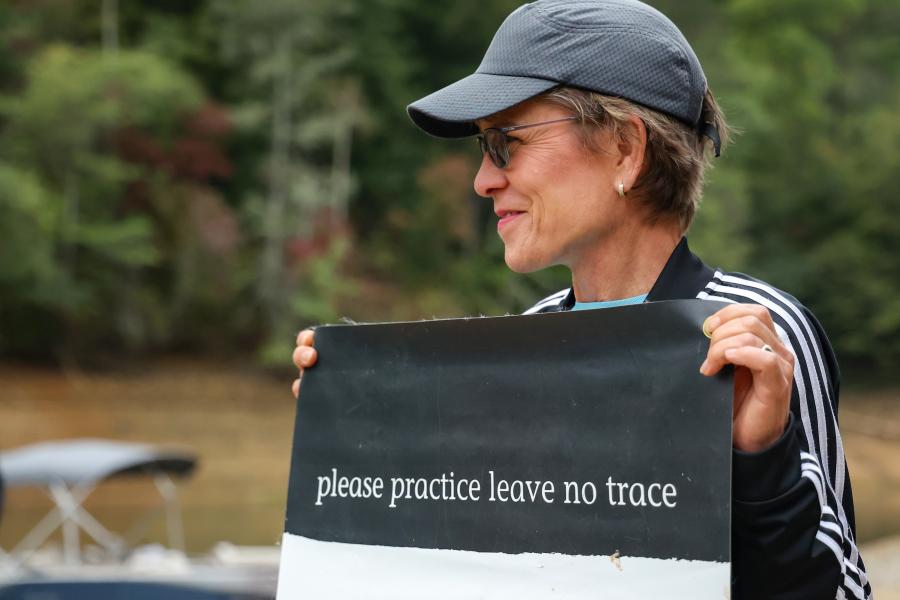
The Town of Waynesville is committed to Supporting a Transition to 100% Clean Energy and Green Jobs by 2050
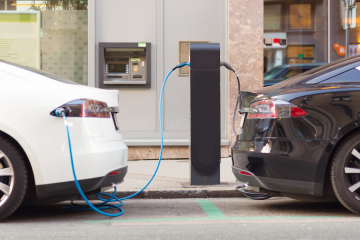
Latest ESB initiatives, clean energy grants, and sustainability updates.
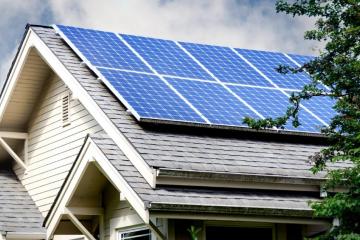
Energy savings programs, rebates, and upcoming solar initiatives for local residents.
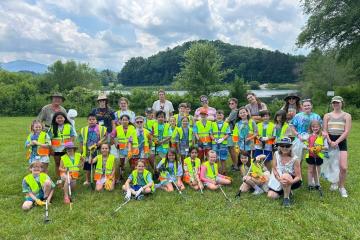
Local volunteer opportunities with trusted nonprofits supporting sustainability, conservation, and community well-being.

Helpful guides, tools, and resources for sustainable living, clean energy, and environmental action.
Get active, enjoy the beauty of Waynesville, be healthy & social! Explore all the classes, leagues, and facilities to get you moving and having fun.
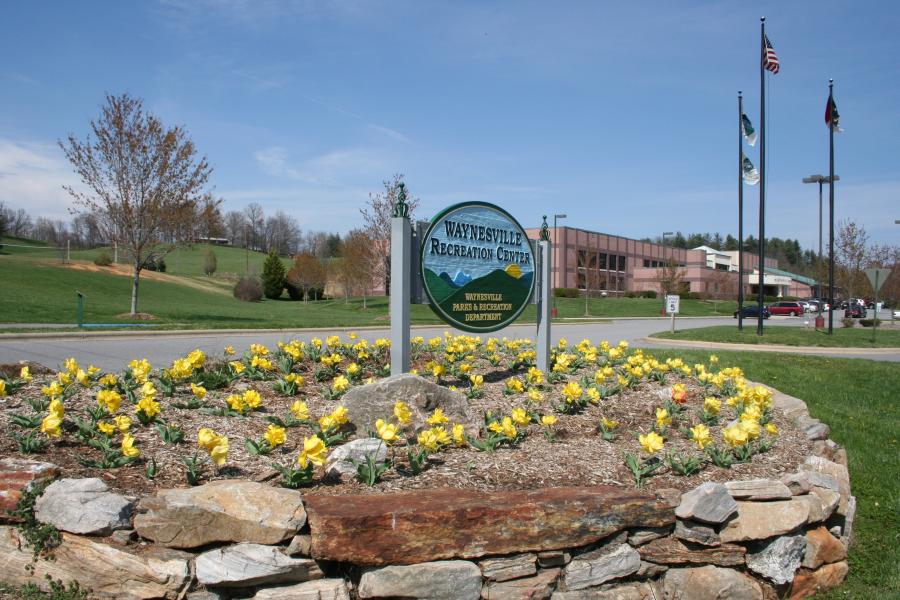
Sustainability has many parts. One important part is about money, what you and others spend to get services like electricity, heating, lighting, water, transportation, etc. Becoming more sustainable usually includes saving money by paying less for services. Sometimes becoming more sustainable is free and sometimes it takes an initial cost to save over the long run. Here are examples. If you ride a bike or walk to work or a store, you save money on gas and its basically free (besides minimal wear on shoes or bike). If you weatherize your home by adding insulation, you may spend money up front (although some programs can reduce or eliminate your cost, look under the resources sections) but will see immediate decrease in your utility bill and usually in a short period (about 1 yr) that savings will cover the cost and then continue to save you money every month after that.
In addition to the money part, sustainability looks to improve our health (cleaning up the air, food and water we consume), our community (helping people become more active and social) our environment (cleaning up the land, rivers/lakes and forests) and our planet (reducing our impact on the systems creating extreme weather, like the three 500-1000 yr. floods hitting us in just the last twenty years!).
Trees in the town are important not only for their natural beauty, which makes Waynesville a nice place to visit and live in, but for their function of cooling and cleaning the air for all of us and providing habitat to animals. The Town’s tree ordinance is in Chapter 8 of the unified development ordinance. Because, sadly, many young, newly planted trees do not survive, the general rule is that removal of any tree during development requires replacement with 2 new trees.
16 South Main Street
Waynesville, NC 28786
United States